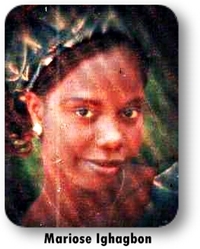Remodeling Democracy in Nigeria to Deliver

 |
This advertorial is sponsored by the Center for International Private Enterprise (CIPE)
Key Points
1. It has been 11 years since Nigerians embraced democracy (the longest period in its history), but they still face situations that characterized the military era: poverty, corruption, infrastructural decay, social menace, vast unemployment, and violation of basic human rights.
2. Three factors responsible for the missing link between Nigeria’s democracy and the necessary elements of equality and freedom are: responsible governance, costliness, and the role of the military in society.
3. Remodeling democracy in Nigeria requires focusing on four areas of change: reorientation, personal responsibility, active participation, and harnessing young people.
“Every segment of our population and every individual have a right to expect from his government a fair deal.” Harry S. Truman (1945)
Introduction
The political history of Nigeria could easily be described as a running tale of struggles, armed conflict, and corruption tied to the inability of social groups and the country’s leaders to move beyond the flashpoints of religion and ethnicity. Religious, communal, ethnic, and resource conflicts are generated by economic, social, and political arrangements. These conflicts have become increasingly frequent in the last few years. A typical example is the recurring crisis in Jos in the Plateau state of north central Nigeria (a hitherto peaceful place), where fights between the indigenous population and settlers are common and indiscriminate killings have been persistent.
Despite being the fourth largest democracy worldwide and the largest in Africa, there is a blatant contrast between the grinding poverty of the majority and the wanton wealth of a favored few. Even the most optimistic citizens are beginning to lose hope of an economic turnaround, thanks to the many promises broken by politicians. Some have begun to ask if their expectations of democracy are unrealistic. Why has the dividend of democracy eluded the Nigerian people for the past eleven years of civil rule, and is there any hope for an about face?
Building from these questions, this essay will highlight and examine the concepts of democracy in Nigeria and Nigeria’s philosophy of governance. It will also expose the underlining factors responsible for the failure of democracy to deliver to Nigerians. It will further seek to identify ways in which democracy can deliver by discussing the political and social values that can transcend the current ailing democracy in Nigeria.
The Appeal
“Democracy is itself a religious faith. For some it comes close to being the only formal religion they have.” B. White
Prior to independence in Nigeria, the nation’s founding fathers struggled and fought to free the nation from external colonization. On October 1, 1960, Nigeria gained its freedom and instituted a political system guided by the principles of equity and freedom. Barely six years after independence, a military coup toppled the democratic government in power, marking the beginning of the political and social struggles witnessed in Nigeria for almost three decades of military dictatorship.
The breakdown of law and order, degeneration of social infrastructure, economic stagnancy, militarization of erstwhile civil structures, widespread corruption, and poverty generated pro-democratic movements among Nigerians. The appeal of joining the league of democratic nations like the United States and Great Britain increased as people saw the combination of democratic freedoms and economic growth resulting from choice and transparency.
In the immediate wake of the transition from military rule to democratic governance 11 years ago, Nigerians expressed very high hopes for what democracy would offer. To the hungry, it meant food on the table; to the unemployed, more job opportunities; and to the oppressed, justice at last. Western democracies appeared to offer solutions to Nigeria’s social and economic issues. Democracy promised economic prosperity and higher standards of living. Our expectations of democracy hung on this promise.
The Disappointment
“Democracy does not guarantee equality of conditions – it only guarantees equality of opportunities.” Irvin Kristol
It has been 11 years since Nigerians embraced democracy (the longest period in its history), but Nigerians are still faced with the situations that characterized the military era: poverty, corruption, infrastructural decay, social menace, vast unemployment, and violation of basic human rights. This worrisome situation has encouraged large-scale emigration, especially among young people, to other countries that appeared to offer more favorable social conditions. Nigerians are disappointed with what democracy has given them over more than a decade of its practice.
Mariose Ighagbon was born and resides in Lagos Nigeria. From her high school days at Maryland Comprehensive Secondary School Ikeja Lagos, she has been involved in writing and debate competitions that focus on how to proffer solutions to problems bedeviling the society both locally and internationally. Her essays have been published by the World Bank and participated in the St Gallen Symposium. She is pursuing a degree course in Physiology/Pharmacology at the University of Jos, Nigeria.
This essay was a winner in the Center for International Private Enterprise's (CIPE) 2010 International Youth Essay Contest. For more information on the essay contest and to read the rest of the winning essays please visit www.cipe.org/essay
